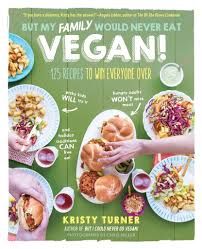The term “vegan” was first used in 1944 by a small group of vegetarians who broke away from the Leicester Vegetarian Society to form the vegan society. These people chose not to consume dairy, eggs, or any other products of animal origin, in addition to not eating meat like the vegetarians. Therefore, they felt the need to form a society that better represented their views. In 1979, the Vegan Society became a registered charity and updated that definition.

Veganism is a way of eating and living that excludes the exploitation of and cruelty to animals as much as possible.
A vegan diet includes all grains, beans, legumes, vegetables and fruits, and the nearly infinite number of foods made by combining them. In addition, many vegan versions of familiar foods are available, so you can eat vegan hotdogs, ice cream, cheese, non-dairy yoghurt, and vegan mayonnaise.
Reasons for following a vegan diet can include preventing cruelty to animals, environment considerations, or simply looking to lose weight and lead a healthier lifestyle. Being vegan is beneficial
For the animal – preventing the exploitation of animals is not the only reason for becoming vegan. Avoiding animal products is one of the most obvious ways you can take a stand against animal cruelty and animal exploitation everywhere.
For your health – well planned vegan diets follow healthy eating guidelines, and contain all the nutrients that our bodies needs. Some research has linked vegan diets with lower blood pressure and cholesterol and lower rates of heart disease.
For the environment – one of the most effective things an individual can do to lower their carbon footprint is to avoid all animals’ products. This goes way beyond the problem of cow flatulence.
The Mayo Clinic recently reported that switching to a plant-based diet could add up to 4 years to your life. A vegan spares the lives of about 30 animals each year. A 2016 poll suggests that around 2.5 percent of people in the United States follow a vegan lifestyle.
VEGAN Vs Vegetarian
The main difference is that vegetarians do not eat meat but will continue to consume dairy products and eggs. Vegan consumes no animal produce at all. This means that it is less necessary for vegetarians to supplement nutrients. They can still get calcium from milk, for example. Vegans on the other hand, must find a plant based source of calcium.
Veganism also refers to a range of lifestyle choices that exclude animal products, while vegetarianism is purely a dietary choice.
